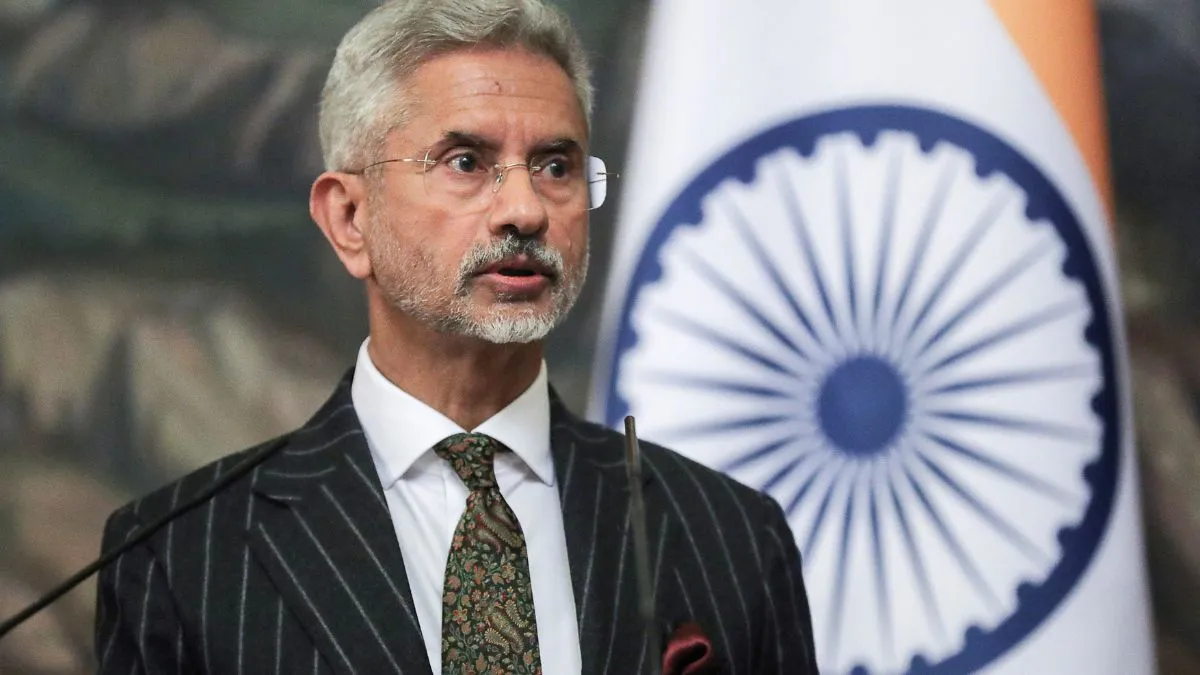- By Nidhi Giri
- Tue, 03 Dec 2024 03:31 PM (IST)
- Source:JND
External Affairs Minister S Jaishankar briefed the Lok Sabha during the Winter Session of Parliament on Tuesday and said that the bilateral relations between India and China were on course of some improvement and full disengagement had been achieved in eastern Ladakh. He further said that India is "committed to engaging with China to arrive at a fair, mutually acceptable framework for boundary settlement" and that the next priority for India would be to continue de-escalation.
“The government has maintained that India-China relations cannot be normal without peace at border areas. We remain committed to engaging with China to arrive at a fair, mutually acceptable framework for boundary settlement,” Jaishankar told Lok Sabha.
“The situation arising after our counter-deployment in 2020 called for multiple sets of responses. The immediate priority was to ensure disengagement from friction points so that there would be no further untoward incidents or clashes. This has been fully achieved. The next priority will be to consider de-escalation, which would address the massing of troops along the LAC with associated accompaniments," the EAM further said.
Jaishankar explained that relationship between the two countries have been abnormal since 2020 as a result of Chinese actions.
"I rise to apprise the House of some recent developments in the India-China border areas and their implications for our overall bilateral relations. The House is aware that our ties have been abnormal since 2020 when peace and tranquillity in the border areas were disturbed as a result of Chinese actions. Recent developments that reflect our continuous diplomatic engagement since then have set our ties in the direction of some improvement. The House is cognizant of the fact that China is in Illegal occupation of 38,000 km² of Indian territory in Aksai Chin as a result of the 1962 conflicts and the event that preceded it. Furthermore, Pakistan illegally ceded 5,180 km² of Indian territory to China in 1963, which has been under its occupation since 1948. India and China have held talks for multiple decades to resolve the boundary issue," Jaishankar stated.
"While there is a Line of Actual Control, it does not have a common understanding in some areas. We remain committed to engaging with China through bilateral discussions to arrive at a fair, reasonable and mutually acceptable framework for a boundary settlement. Members would recall that the amassing of a large number of troops by China along the LAC in eastern Ladakh in April-May 2020 resulted in face-offs with our forces at a number of points. The situation also led to the disruption of patrolling activities. It is to the credit of our armed forces that despite logistical challenges and the then prevailing Covid situation, they were able to counter-deploy rapidly and effectively,” he added.
The EAM said peace and tranquillity between New Delhi and Beijing would be the basis to move forward.
He said, "The House is well aware of the circumstances leading to the violent clashes in Galwan Valley in June 2020. In the months thereafter, we were addressing a situation that had not only seen fatalities for the first time in 45 years but also a turn of events serious enough for heavy weaponry to be deployed in close proximity to the LAC. While a determined counter-deployment of adequate capability was the government's immediate response, there was also the imperative of a diplomatic effort to defuse these heightened tensions and restore peace and tranquillity. The contemporary phase of our ties with China dates back to 1988 when there was a clear understanding that the Sino-Indian boundary question will be settled through peaceful and friendly consultations. In 1991, the two sides agreed to maintain peace and tranquility in the areas along the LAC pending a final settlement of the boundary question. Thereafter, in 1993, an agreement was reached on the maintenance of peace and tranquillity. Subsequently, in 1996, India and China agreed on confidence-building measures in the military field. In 2003, we finalised a Declaration of Principles of our relations and comprehensive cooperation, which included the appointment of special representatives."
"In 2005, a protocol was formulated on modalities for the implementation of confidence-building measures along the LAC. At the same time, the political parameters and guiding principles for the settlement of the boundary question was agreed to. In 2012, a working mechanism for Consultation and coordination WMCC was established and a year later we reached an understanding on border defence cooperation as well. The purpose of my recalling these agreements is to underline the elaborate nature of our shared efforts to ensure peace and tranquillity and to emphasize the seriousness of what its unprecedented disruption in 2020 implied for our overall relationship," Jaishankar explained.

